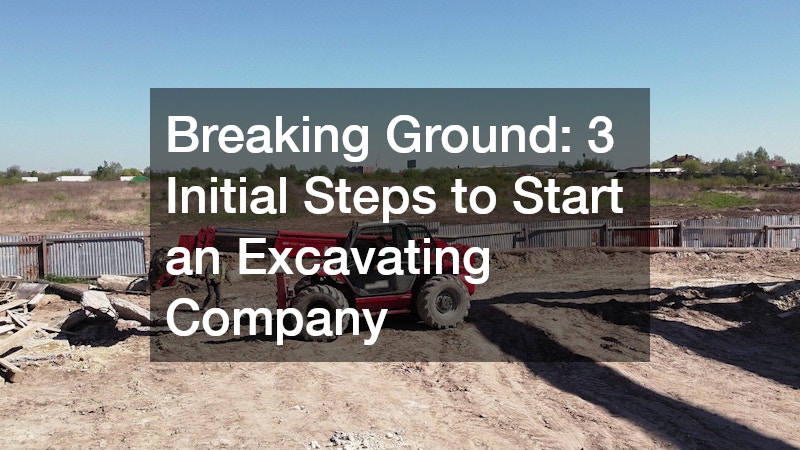Starting an excavating company can be a rewarding venture, but it requires careful planning and strategic execution. In this article, we will explore the essential steps needed to begin your journey as an excavating contractor.
What are the necessary permits and licenses required?
Navigating the legal landscape is crucial when starting an excavating company. Understanding the permits and licenses needed in your specific location can help you remain compliant and avoid costly delays.
Each state and locality may have its own unique set of regulations that govern excavation activities, making it imperative to conduct detailed research. Failure to acquire the correct permits can result in fines, project stoppages, and damage to your company’s reputation.
Begin by contacting your local municipality or county office to inquire about specific licensing requirements for excavation services. Some regions may require a general contractor’s license, while others might demand more specialized permits, such as those for grading or demolition work. Additionally, environmental regulations might dictate the need for special permits, particularly if the project involves wetlands or other sensitive areas.
Finally, staying up-to-date with any zoning laws and environmental protections that could impact your operations is essential. These laws can affect where and how you can conduct your excavation work. For instance, working near protected habitats or historical sites may require you to take additional precautions or obtain further clearances. By understanding these legal obligations from the beginning, you can ensure that your company operates within the law, laying a solid foundation for success.
How to acquire the essential equipment for excavation?
Choosing the right equipment is a vital step in launching an excavating business. Consideration of the types of projects you intend to undertake can guide you in acquiring the necessary tools and machinery. The size and scope of your anticipated projects will largely dictate the equipment required, whether it’s small-scale residential work or large commercial jobs. The cost of excavating equipment can vary widely, so prioritizing the most essential machinery for your intended workload is crucial to managing your budget efficiently.
Research the various types of excavators, bulldozers, and loaders available on the market, paying attention to the latest technology and features that can enhance your operational efficiency. Decide whether it’s more cost-effective to lease, buy new, or purchase second-hand equipment, each of which has its own set of advantages and financial considerations. Don’t forget to factor in ancillary items such as attachments and safety gear, which are vital for smooth on-site operations and compliance with safety regulations.
Establish relationships with reputable equipment dealers to secure maintenance and service agreements that can minimize downtime and prolong the life of your machinery. These partnerships can also offer opportunities for financing, enabling you to acquire more advanced equipment as your business grows. Ultimately, investing in quality equipment will not only enhance your service capabilities but also instill confidence in potential clients about your commitment to delivering high-quality work.
What strategies are effective for finding your first clients?
Securing your initial contracts is key to business success. Developing a robust marketing strategy and networking can significantly aid in attracting your first clients in the competitive excavation market. Start by identifying your target audience and tailoring your marketing efforts to reach them effectively. Utilizing both traditional marketing methods, such as flyers and business cards, along with digital marketing techniques, can broaden your reach and increase brand awareness.
Form partnerships with local contractors, builders, and landscapers who can provide referrals or subcontract work to your company. Building strong relationships within the industry can lead to steady work and valuable word-of-mouth promotion. Additionally, joining local business associations or trade organizations can offer networking opportunities and increase your visibility within the community.
Creating a professional online presence, including a well-designed website and active social media profiles, can help establish credibility and showcase your expertise to a wider audience. Highlight completed projects and client testimonials to build trust and demonstrate your commitment to quality service. An effective marketing and networking plan can be the catalyst for securing your first clients and establishing a solid customer base from which your company can expand.
While starting an excavating company involves multiple steps, focusing on obtaining necessary permits, acquiring essential equipment, and crafting a strong client acquisition strategy can set the foundation for a successful business. With dedication and strategic planning, your excavation company can thrive in this dynamic industry.
.




